|
Today’s “Inspiring Instagram” to check out is @thewaywemet. This amazing account posts "real stories about the way couples meet, fall in love, & navigate relationships…" These are such beautiful love stories, and just reading about how two people met and fell in love can help spread some happiness into your day. Check it out here:https://www.instagram.com/thewaywemet/
#leadwithlove #teenempowerment #inspiringinstagramfriday #teengirls#teens #teenposts
1 Comment
Today’s “Inspiring Instagram” to check out is @ily.positivity. Shout out to an amazing teen girl and young leader, Casey, for suggesting this uplifting account! @Ily.positivity posts positive quotes to promote self-acceptance, healing, and appreciation. These phrases and quotes provide everyone a great reminder that you aren’t alone, this too shall pass, and that you are strong and amazing. So if you are looking for some extra positivity, inspiration, and motivation in your Instagram feed everyday, I highly suggest this account. Like it says in the description, “…You are stronger than you think, braver than you know, and more radiant and important than you could ever imagine. Most of all, you will be okay. ☀️” Check it out here:https://www.instagram.com/ily.positivity/
#leadwithlove #teenempowerment #inspiringinstagramfriday #teengirls#teens #teenposts Today’s “Inspiring Instagram” to check out is @positivebodyimage. They describe themselves as “Twin girls from Canada. Spreading positive inspiration for anybody who needs it! ...www.positivebodyimageproject.tumblr.com” I'll admit it—I LOVE uplifting quotes, which is why I love this account. They post such beautiful phrases and messages about life. This account helps foster resilience, self-love, positivity, and the knowledge that you are enough just as you are! Check it out here: https://www.instagram.com/positivebodyimage/
Today’s “Inspiring Instagram” to check out is @amypoehlersmartgirls. “Best friends Amy Poehler & Meredith Walker created Smart Girls to celebrate your truest self. Why? Because you change the world by being yourself! 💕🦄 bit.ly/1S1kZuW” Not only does this account post inspirational quotes, but it also promotes female leaders of all ages. @Amypoehlersmartgirls encourages you to go after your dreams, speak your truth, support your friends, and unapologetically be yourself! Check it out here: https://www.instagram.com/amypoehlersmartgirls/
#leadwithlove #teenempowerment #inspiringinstagramfriday #teengirls#teens #teenposts Today’s “Inspiring Instagram” to check out is @sheknowsnow. “She Knows Now™ SKN is a digital collection of insight from confident, ambitious women who share what they each know for sure. We support you.” This amazing account interviews inspiring women about what they have learned in their personal or professional experiences. Women speak about topics such as forgiveness, owning your day, positive thinking, and failing towards success. The company SKN aims to promote positive images of women in media. Check it out here: https://www.instagram.com/sheknowsnow/
A couple of weeks ago, I spoke at a Wellness Expo at a Bay Area high school on the topic of social media and specifically how it impacts our teens' health. Now, you might be thinking, "How the heck does social media impact health? Is it that you don’t exercise as much if you are on it? I don’t really get it…" Put simply, social media impacts your brain and therefore your mental health. According to a study done by Common Sense Media, the average U.S. high school teen spends “about nine hours using media for their enjoyment” and the average middle schooler spends 6 hours a day on media. This includes listening to music, texting, going on Snapchat or Instagram, watching TV, etc. What this doesn’t include is the extra time your teen spends on the Internet doing homework. That’s more time than teens spend in school each day, often more time than they spend at home, and more time than many of them are sleeping each night. So media is the number one thing teens spend time on—in other words, it’s really, really, really impacting their brain development. Social media and the messages it conveys are one of the biggest influencers on teen’s brain and therefore their views about themselves and the world. What are some of the messages that teens get from social media?
Basically, every time a teen girl scrolls through her Snapchat stories or Instagram feed, she is getting the message that who she is isn’t good enough and she needs to look outside of herself for validation and acceptance. So what's the impact of those messages? The average girl’s self-esteem peaks at age 9. Fifty-three percent of 13-year-olds are unhappy with their bodies and that number jumps to 78% by the time they are 17. Depression rates have doubled among women between 2000 and 2010. And 17% of teens engage in self-injurious behaviors (although I have to believe this number is sadly on the rise). While social media can have many positive effects, overall in today’s society, it can be pretty freakin' toxic to your self-esteem and mental health. So what can you do? Well, most teens aren’t going to cut their social media use completely or stop following Kylie Jenner on Instagram; it’s just not realistic in today’s day and age. But one great thing you can do is balance out the negative messages with some positive ones. My rule of thumb: For every celebrity account you follow on Instagram or Snapchat, follow a positive, inspiring, or uplifting account. That way, when you scroll through your Instagram feed of the Kardashians and T-Swift, you see an inspiring quote telling you that you are good enough just as you are, or you see an adorable dog that makes you laugh, or you see a woman owning her beauty and curves, or you see a rockstar businesswoman telling you to follow your dreams. This helps interrupt the negative messages and they don’t take as much of a toll on your brain. Instead, by following positive accounts, you get to rewire your brain towards positive thoughts—like giving yourself some compassion, knowing you are beautiful and amazing, and not letting anyone tell you otherwise. And that’s why every Friday, I’ll be posting an “Inspiring Instagram” account to check out. If you like it—follow it! If not, no worries and at least you got a bit of positivity in your day. So, drumroll please…. Today’s “Inspiring Instagram” to check out is @beauty_redefined. They describe themselves as a “Nonprofit teaching positive body image since '09 thru online ed & speaking 💗 Run by twins Lindsay & Lexie Kite, PhD.” I love this inspirational account because it posts fantastic and thought-provoking quotes from celebrities about fostering self-acceptance and redefining beauty. Check it out here: https://www.instagram.com/beauty_redefined/.
Do you have any Instagram or Snapchat accounts you follow that are inspiring, positive, or uplifting? I’d love to know and am always down for some positivity! In the comments below, tell me the positive accounts you love to follow, and one Friday, your suggestion could be sent to teens and families across the country. You are awesome, and happy Friday! Shandra Here's a very interesting read on the rise of sexualization of young teenage girls in social media: http://time.com/americangirls/
A lot of what teens are doing today stems from the unconscious messages they receive from the media. With the rise of cellphones and social media apps, girls’ access to these unhealthy messages is only amplified and increased, resulting in many girls taking more sexualized photos of themselves in an effort to “get likes” and validation. Teen years are developmentally characterized by the desire to exert one’s individuality and independence along with validation for that individuality. “Accompanying the boom in selfie culture is a rise in competitive spirit, as well as a disturbing trend of sexualization. Likes, hearts, swipes—validation is only a tap away. And one of the easiest ways to get that validation is by looking hot. Sex sells, whether you’re 13 or 35.” When we were growing up, we did versions of this too. For me, it was wearing tight or revealing clothing and flirting on AOL Instant Messenger. For you, it may have been sneaking out or making out at school. But with kids' unlimited access to their phones and media, this sexualization is escalating and this need for validation is only getting worse. That’s why it’s important to not only understand the media’s messages, but also to have these conversations with your daughter. That way she can make conscious and healthy choices about what she chooses to share and post on social media. That way she realizes that she doesn’t need followers, “likes,” or views in order to gain attention and love. She is more than good enough just as she is. It’s also important to reasonably limit her access and use of social media websites along with having open conversations on what's safe to post, what to stay away from, etc. She is not yet an adult with a fully developed brain who can think through long-term consequences. When she has boundaries and conversations around social media etiquette, she can make more informed decisions. Again, the more conversations, the better! And a great way to start the convo is to start by watching the documentary Miss Representation with her or reading this article about a teen Instagram star who announced she was quitting social media: http://www.theguardian.com/media/2015/nov/03/instagram-star-essena-oneill-quits-2d-life-to-reveal-true-story-behind-images So I invite you: Ask your daughter why she likes Instagram and Snapchat, as well as what types of things she follows and why. Ask her what her friends or other people at school post on social media and what she thinks about that. Finally, how do you handle this conversation with your daughter? Is this something you talk about even with the eye rolls? How do you bring these conversations up and do you have any questions you ask that seem to work well? I’d love to hear! Ever have that really judgmental, harsh voice in your head that tells you that you aren't good enough and never will be? Well, that's the inner critic! In this second video I share 2 easy steps you can take to quiet that inner critic so you can be a happier, more confident person.
Ever have that really judgmental, harsh voice in your head that tells you that you aren't good enough and never will be? Well, that's the inner critic! In this first video I share about what the inner critic is, how everyone has one, its impact on self esteem, and how can you identify it.
One of the teen girls I am working with and I have focused a lot on the topic of happiness recently. How do you foster it? How can you become more happy over time? What tools can you use that will build resilience and help reduce stress?
This article gives 4 great tools, backed by neuroscience, to help foster happiness. To sum it up: "Here’s what brain research says will make you happy: [1.] Ask “What am I grateful for?” No answers? Doesn’t matter. Just searching helps. [2.] Label those negative emotions. Give it a name and your brain isn’t so bothered by it. [3.] Decide. Go for “good enough” instead of “best decision ever made on Earth.” [4.] Hugs, hugs, hugs. Don’t text — touch." One of the main tools I found works for me as well as my client is the practice of gratitude. When we can focus on the things we are grateful for rather than the things that are stressing us out, the world seems more manageable and we find more happiness. That's why I make a list of things I am grateful for every day. I've also used the other tools and felt their impact. By just noticing that I am sad, angry, or overwhelmed, and how that feels in my body, I immediately begin to come back to the present moment and calm down. Moreover, as I write this post right now, I notice my perfectionism creeping in, telling me that I need to say the perfect thing, write the perfect response, etc. And therefore my stress rises. But like my own coach once told me, "Done is better than perfect." Making decisions and taking action (rather than worrying about it) immediately lifts the weight from my mind and I feel lighter and happier. Finally, in a day and age in which T.R.E.A.M. (technology rules everything around me), the need for human touch often goes unnoticed. A kind text can help but a hug is even better. "A hug, especially a long one, releases a neurotransmitter and hormone oxytocin, which reduces the reactivity of the amygdala." Basically, when you hug someone, that place of "fight or flight" and core emotions like anger and sadness doesn't react as much. Aka you feel less angry or sad, and you feel happier. Some other things not mentioned in the article that help make me happy- yoga, acknowledging others, writing out all the things I am stressed out about, spending time with friends/family, and sometimes just having a good cry. Let me know your thoughts! Have you tried these 4 tips and did they work? What helps you feel happier? http://mobile.businessinsider.com/a-neuroscience-researcher… |
AuthorI am a teen-empowerment coach. I work with teen girls, ages 14-17, who struggle with self-acceptance, perfectionism, seeking attention from others, and deep sadness or anger. Archives
September 2016
Categories |

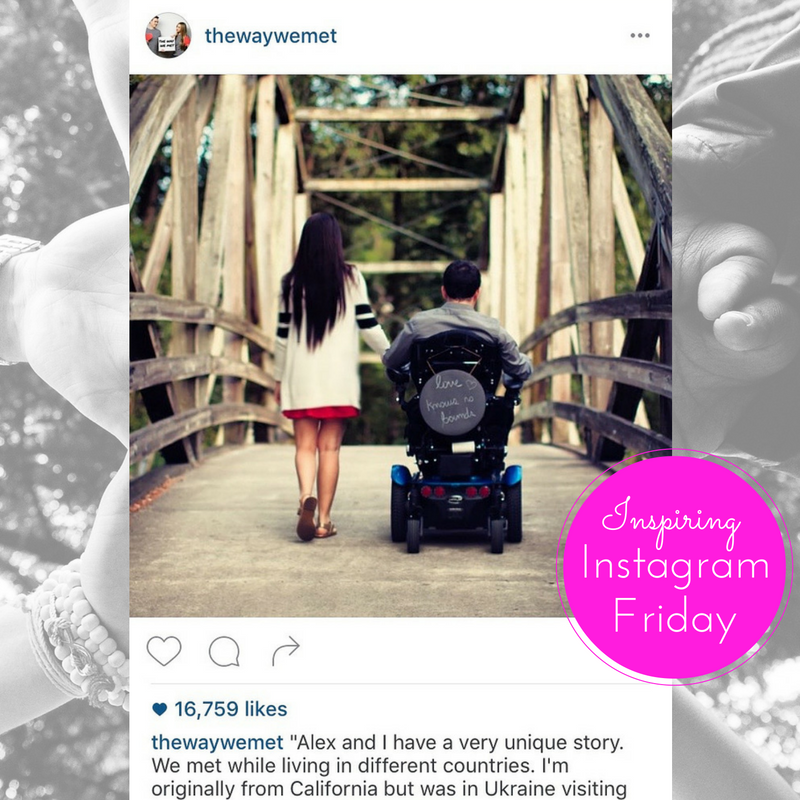
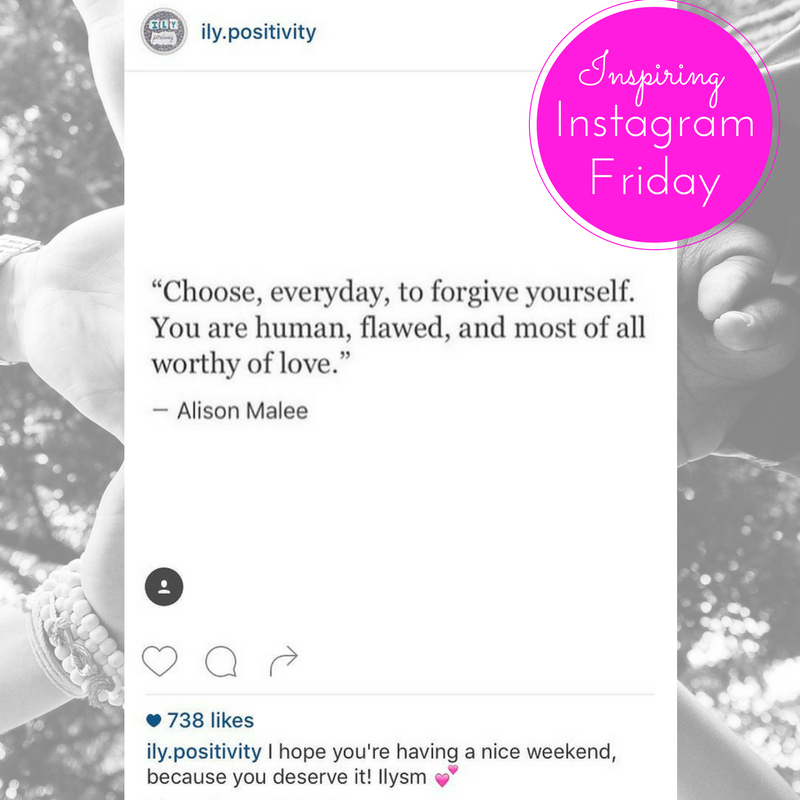
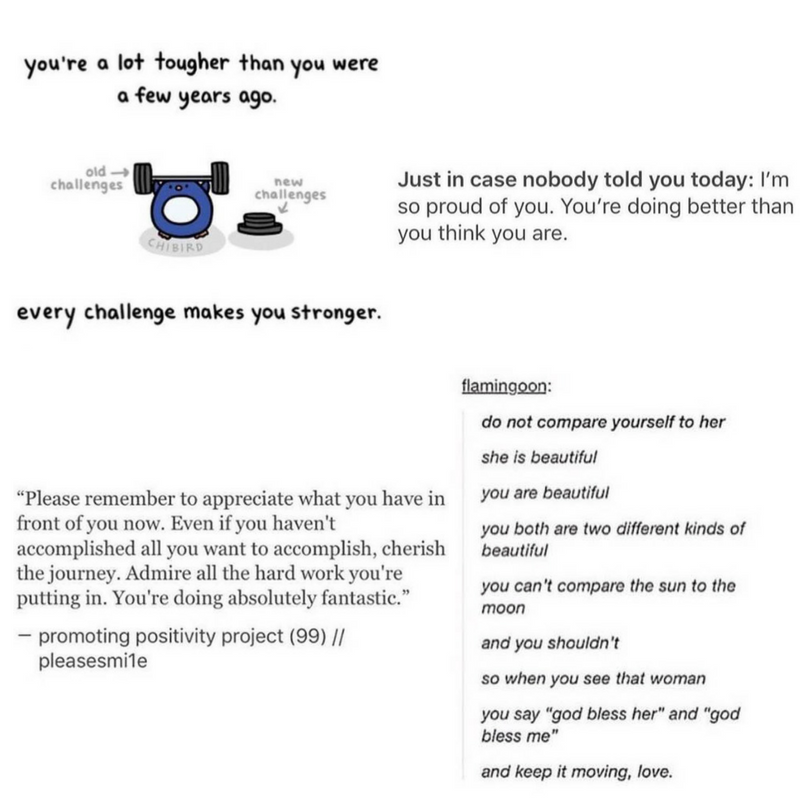
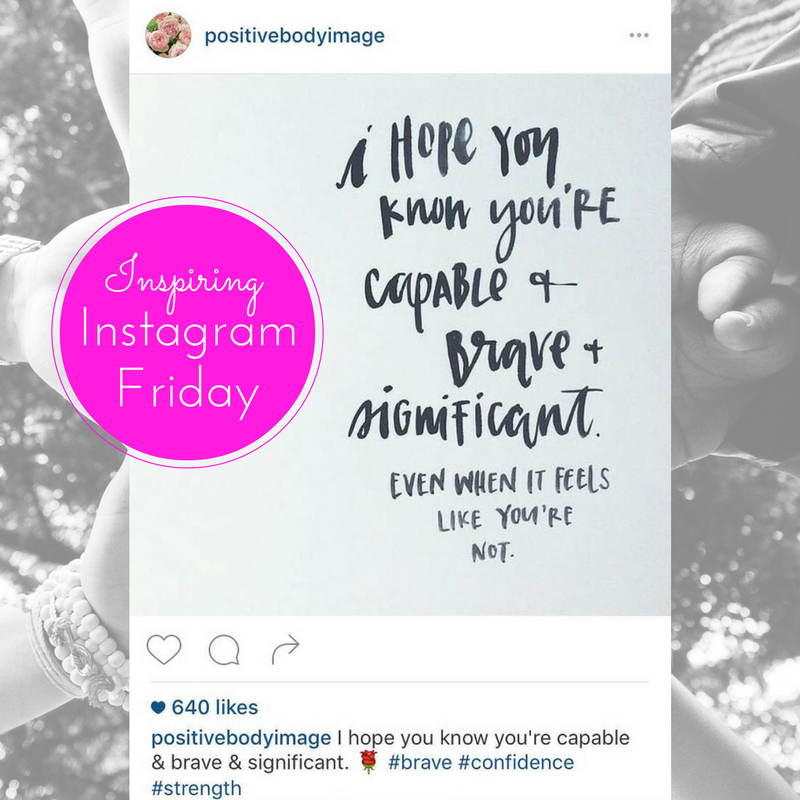
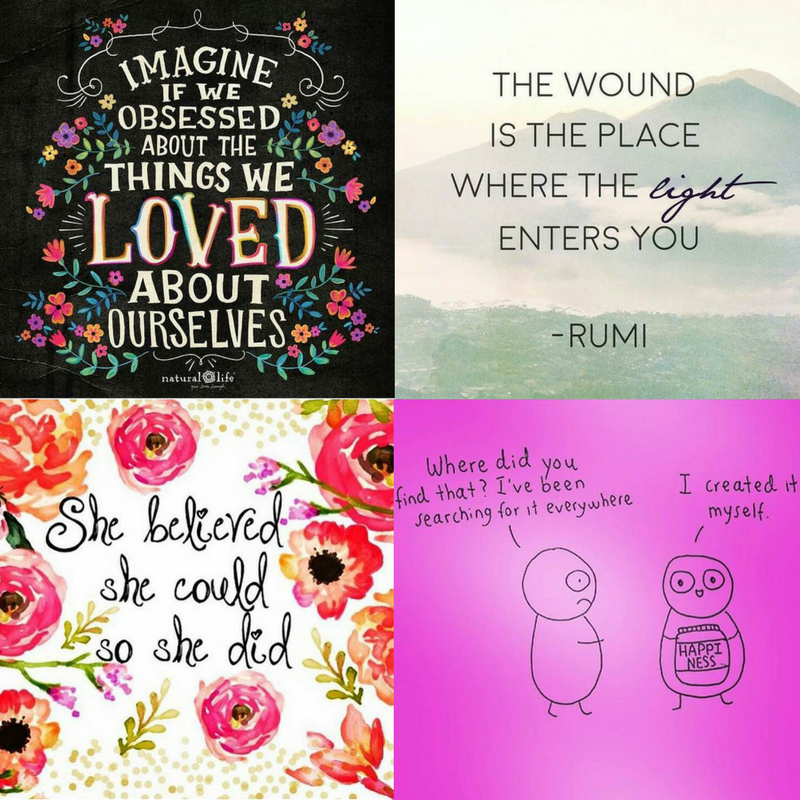
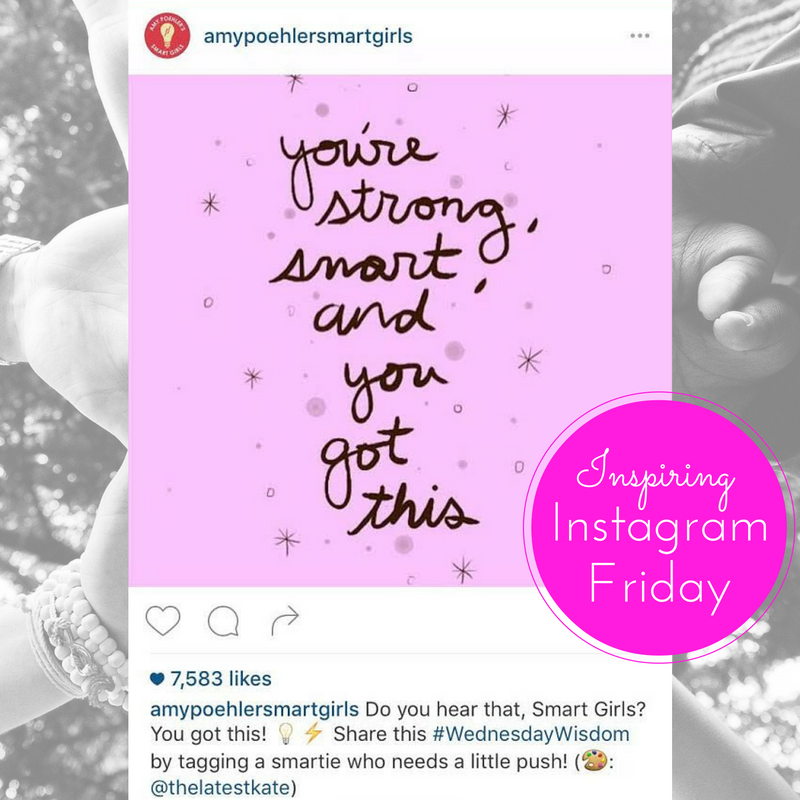
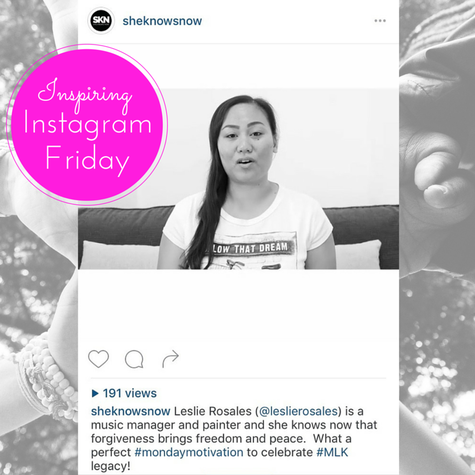
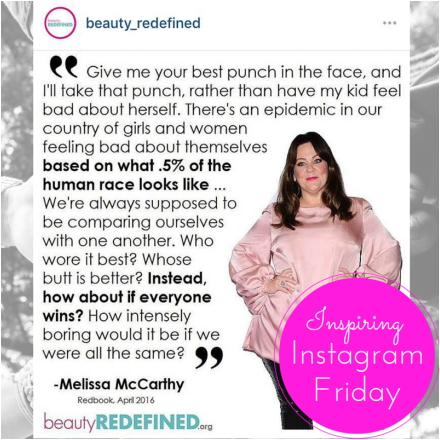
 RSS Feed
RSS Feed